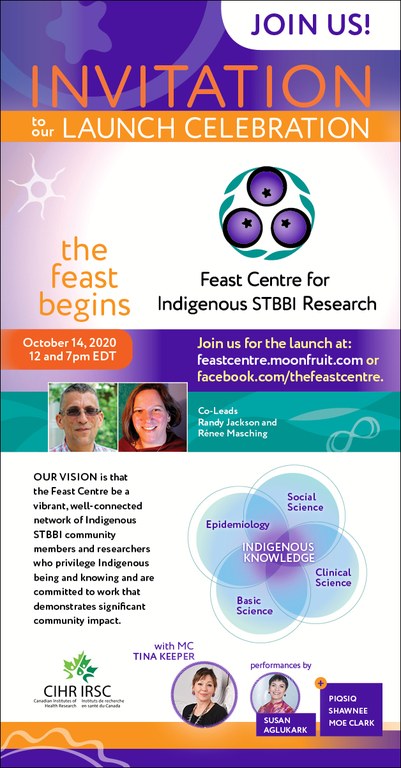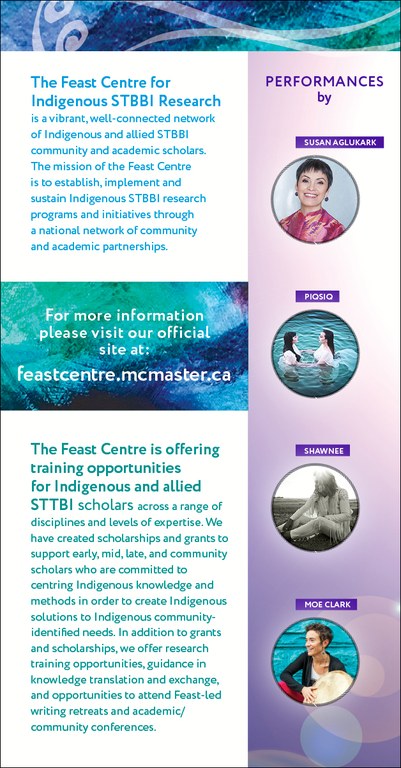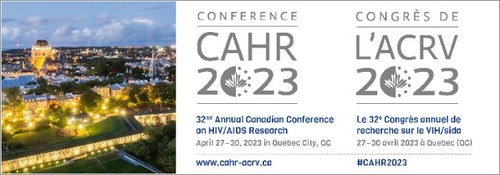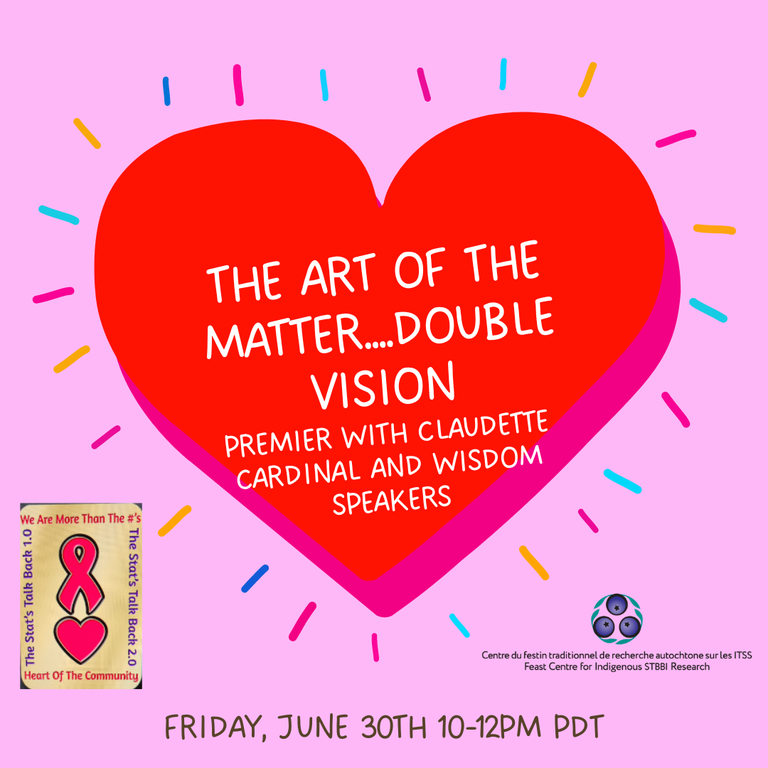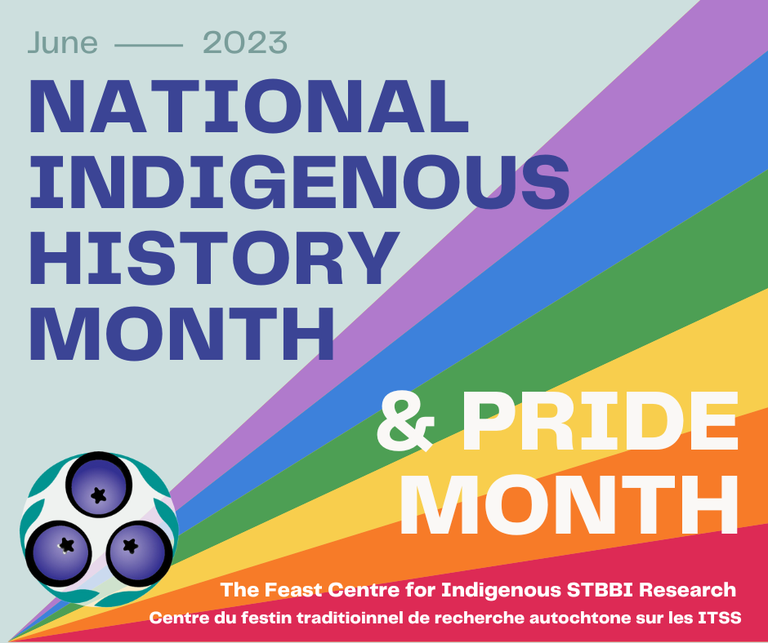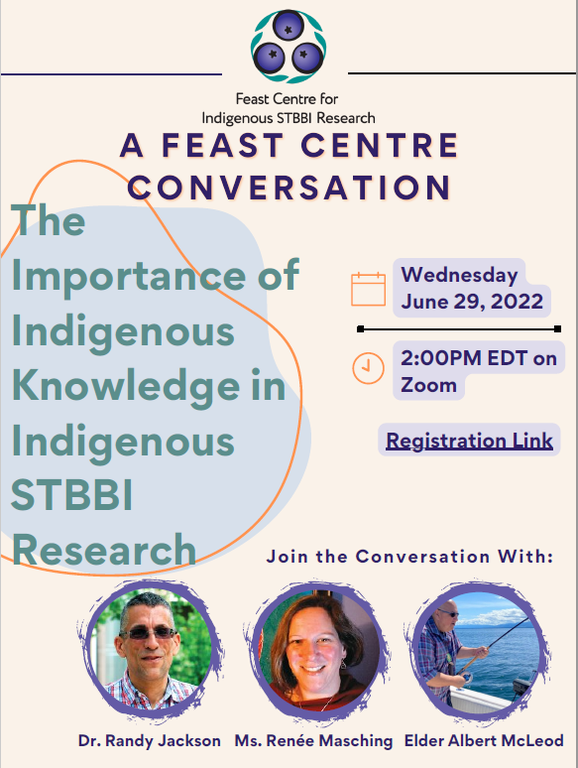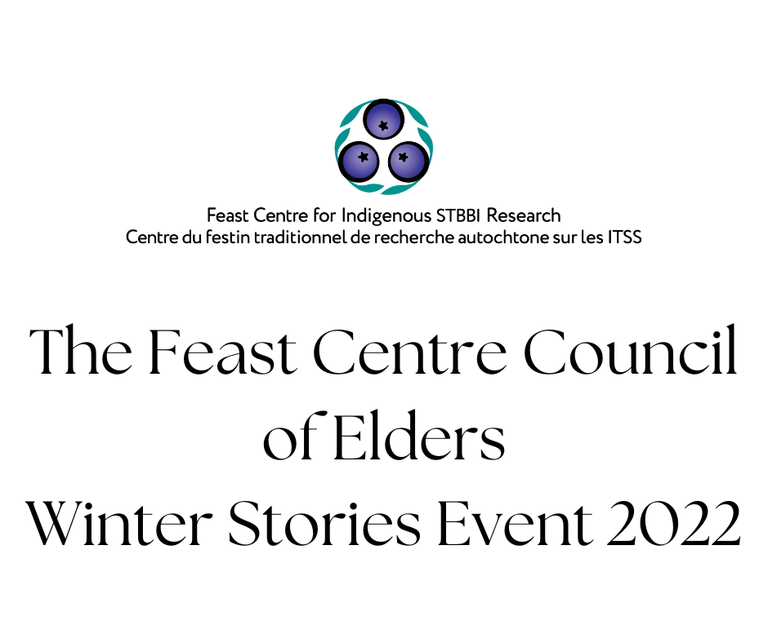News & Events
King Charles III Coronation Medal Recipients
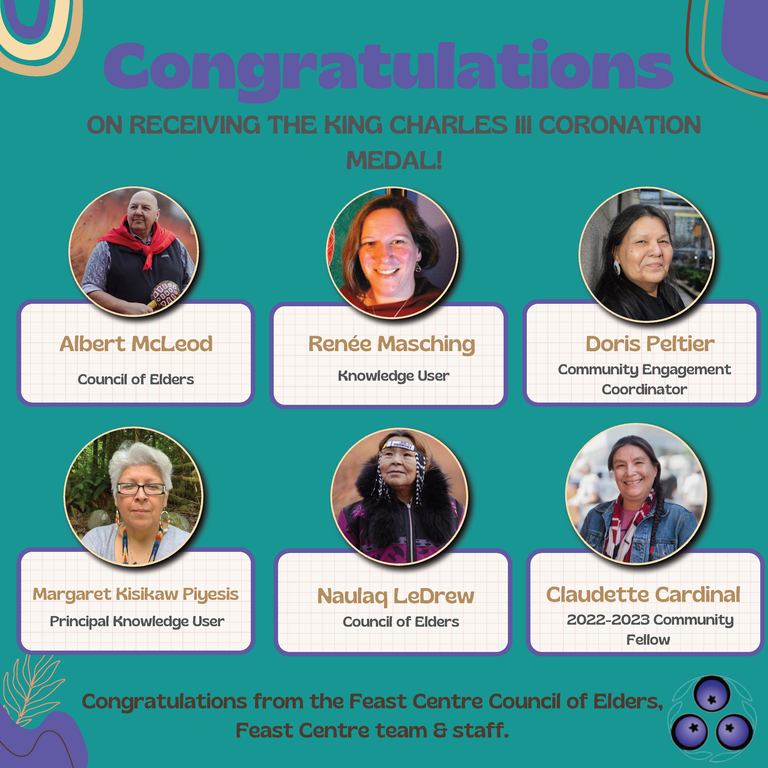
Congratulations to the Feast Team Members who are recipients of the King Charles III Coronation Medal!
Centring Indigenous Knowledges in STBBI Research: Learning from our Elders - CBRC Summit 2024
Sheila Nyman, Albert McLeod, Naulaq LeDrew, Wayne Seward, Jaylene McRae (Feast Centre for STBBI Research), facilitated by Bridget Marsdin (McMaster University) and Doris Peltier (Feast Centre for STBBI Research) The Feast Centre for Indigenous STBBI Research is a national, community-driven research centre grounded in building community, capacity building, and the privileging of Indigenous ways of knowing and being. This panel discussion, led by The Feast Centre’s Council of Elders, will explore the integration of Indigenous knowledges, traditional practices, and ceremonies into Indigenous STBBI research and health research more broadly. These Elders, with their invaluable wisdom drawn from extensive community advocacy and leadership experiences, offer a unique perspective deeply rooted in their distinct traditions and connections to the land.
Photo Gallery
Click here for the Feast Centre photo gallery of our events, retreats and gatherings!
Past Events
Congratulations to Dr. Savage Bear on being named to the Order of Canada
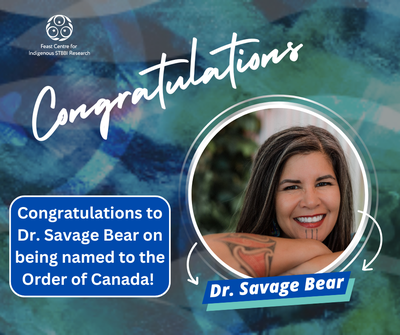
🎉 Congratulations to Dr. Savage Bear on being named to the Order of Canada! Dr. Bear’s remarkable contributions to academia and Indigenous education, especially through the "Indigenous Canada" course, have made a profound impact. This prestigious honour is a testament to her dedication and passion. 🌟
Being named to the Order of Canada is one of the highest civilian honours in the country, recognizing outstanding achievement, dedication to the community, and service to the nation. Established in 1967, the Order of Canada acknowledges individuals who have made significant contributions across various fields, including arts, science, education, and business. Recipients, known as Companions, Officers, or Members, are selected for their ability to inspire and make a difference on both national and international levels. The honour not only celebrates personal accomplishments but also highlights the diversity and resilience of Canadian society, encouraging others to strive for excellence and contribute to the betterment of the world.
Dr. Bear, a Nehiyaw’iskwew (Cree woman) and member of the Montreal Lake Cree Nation, is the Director of the McMaster Indigenous Research Institute (MIRI) and an Assistant Professor in the Indigenous Studies Department. She has significantly advanced the education of Canadians about the history of Indigenous peoples through her work with the Walls to Bridges program, bringing post-secondary education to incarcerated and formerly incarcerated individuals. Her research spans social justice, prison abolition, body sovereignty, sexuality, gender, contemporary Indigenous art, and Indigenous literature.
Exciting news! Dr. Bear will also be a featured guest on the Feast Centre's Indigenous Sexual Futures Podcast, Episode 10 - "Unpacking Indigenous Eroticism: Body Sovereignty, Sexuality, and Landback," to be released soon. Stay tuned! 🎙️
Conversation on Sex Work on December 11 from 1-2:30pm EDT
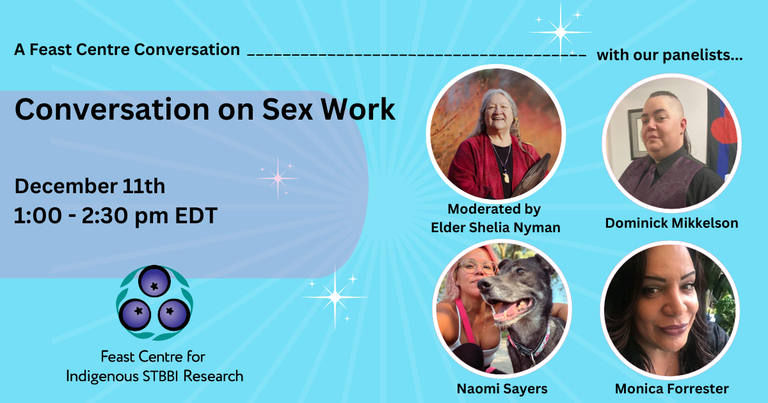
A Feast Centre Conversation: Revisiting "Know Your Status"
March 1st, 2024, 1:00PM EST to 2:30PM EST
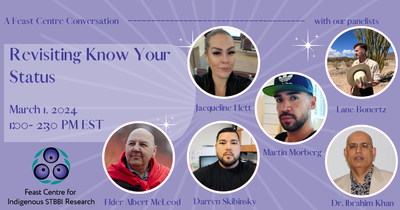
National Day of Action for Missing and Murdered Indigenous Women, Girls & 2SLGBTQQIA+ People
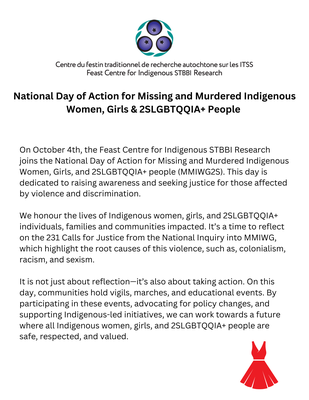
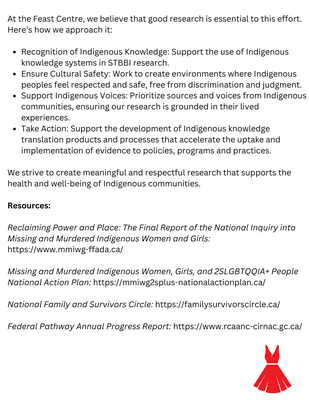
The Feast Centre Team Meeting, April 29-30, 2024
The Feast Centre hosted a full Team Meeting on April 29-30, 2024, in London, ON.
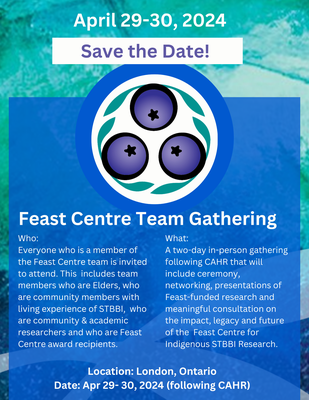
A Feast Centre Conversation: Conversations on Gender
 A Feast Centre Conversation on Gender: Part 2
A Feast Centre Conversation on Gender: Part 2
October 19th, 2023
1:00-2:30PM EDT
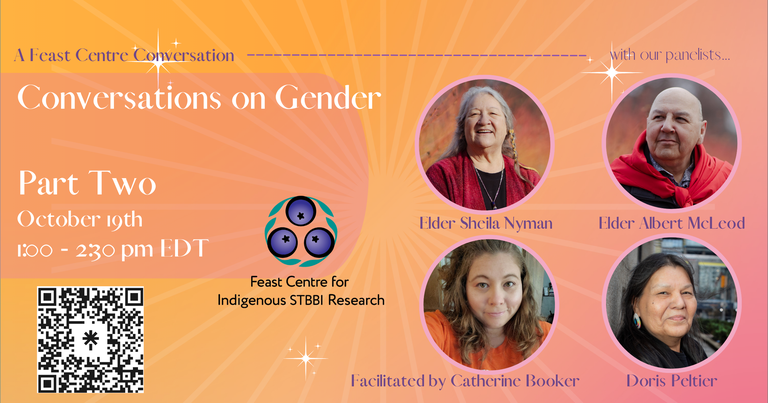

Community Fellowship information session and application workshop
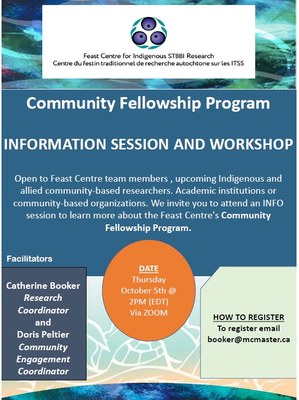
INUIT ILLIQUHII LAND-BASED LEARNING EXPERIENCE
July 17-21st 2023
What is the Inuit Iliquhii Land-based Learning Experience?
The Inuit Illiquhii Land-based Learning Experience is being led by Inuit Elders Anaoyok Alookee and Naulaq LeDrew, Elders’ Helper Ellen Ittunga, Kimberly Fairman, the Executive Director of the Institute for Circumpolar Health Research and is being supported by Feast Centre for Indigenous STBBI Research researchers and knowledge holders. This land-based learning experience follows on the success of Smy’ May,’ a Feast Centre Indigenous land-based learning experience led by Sylix Elder Sheila Nyman on the traditional territories of the Sylix people in the Okanogan Valley.
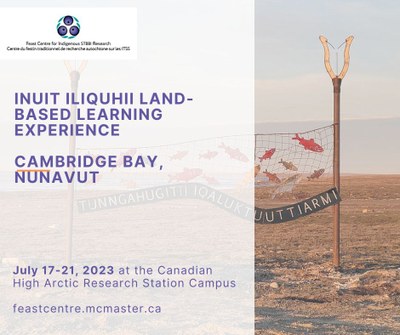
MIYO MACIHOWIN WRITING RETREAT, June 5-9, 2023
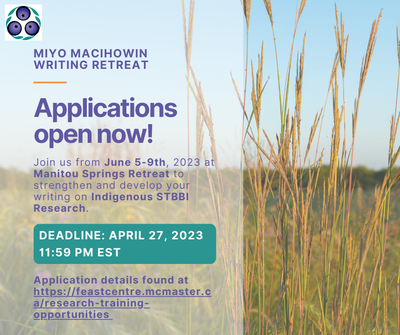
As part of a suite of support for Feast Centre Indigenous STBBI scholars, the Feast Centre is piloting the Miyo macihowin Writing Retreat for those who are committed to engaging in an Indigenous approach to writing aimed at integrating one’s whole self into one’s writing.
Miyo macihowin contains good movement with possibility signalling the integration of movement, mind and spirit. The purpose of the retreat is to explore how we can de-colonize our writing and connect with the Land and each other to build a Circle of support that is safe and non-judgmental and write from our whole selves. This retreat is aimed at those developing Indigenous STBBI writing projects (i.e., thesis chapters, journal publications, community publications, creative community-targeted projects, and grant applications) who would benefit from dedicated space and time to write among your peers.
The Feast Centre Miyo macihowin Writing Retreat took place in Manitou Springs Resort outside of Saskatoon, SK from June 5th to 9th, 2023.
A Feast Centre Conversation: Hepatitis C in Indigenous Communities: Hearing the Full Story
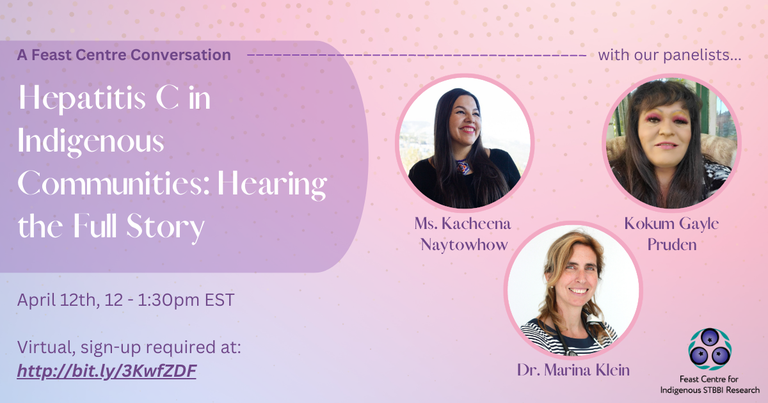
A Feast Centre Conversation, January 2023: Reflecting on the Papal Visit; Sexual Health, Gender Identity and Reparations
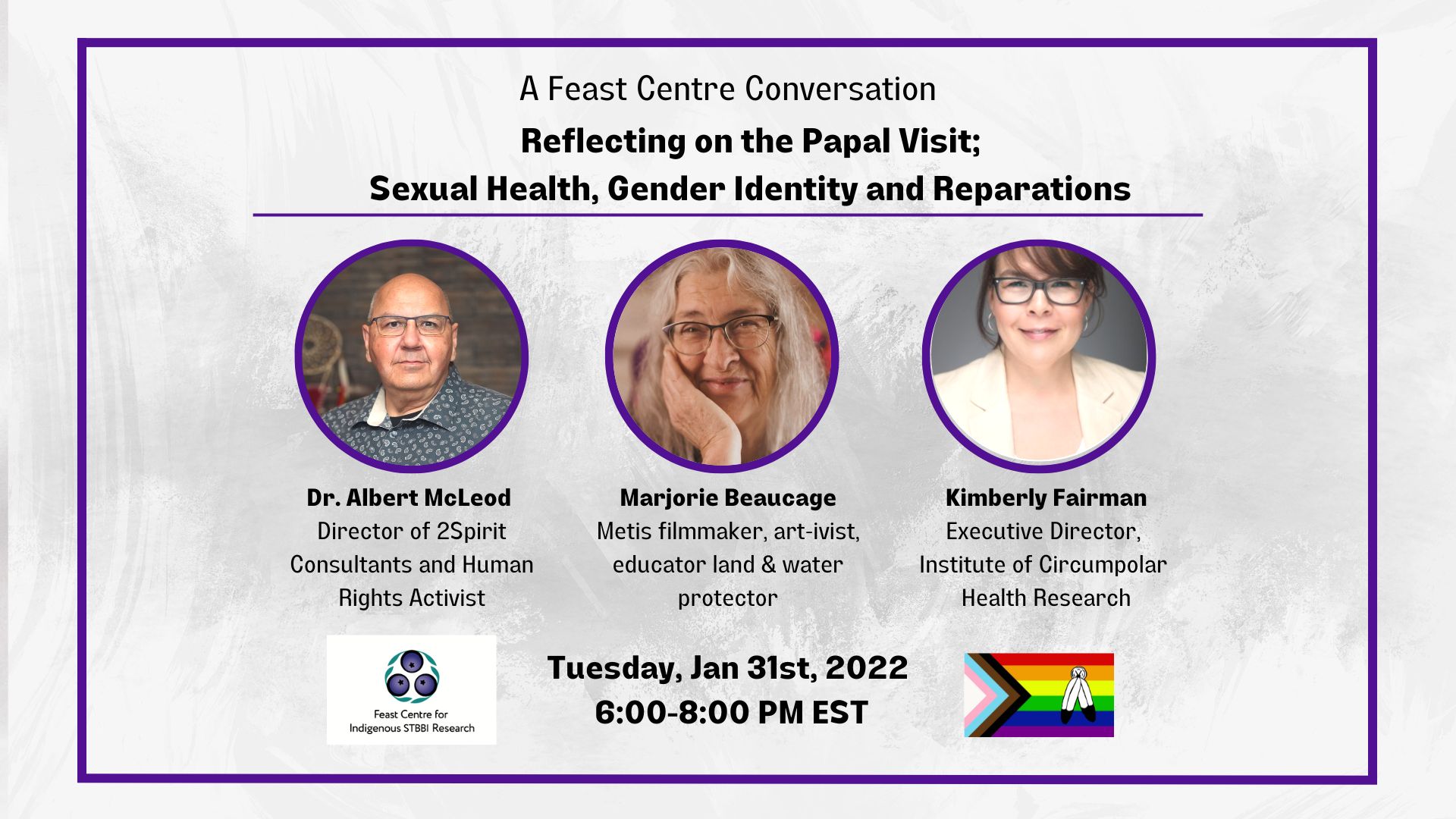
2022 Community Fellowship Virtual Welcome Event
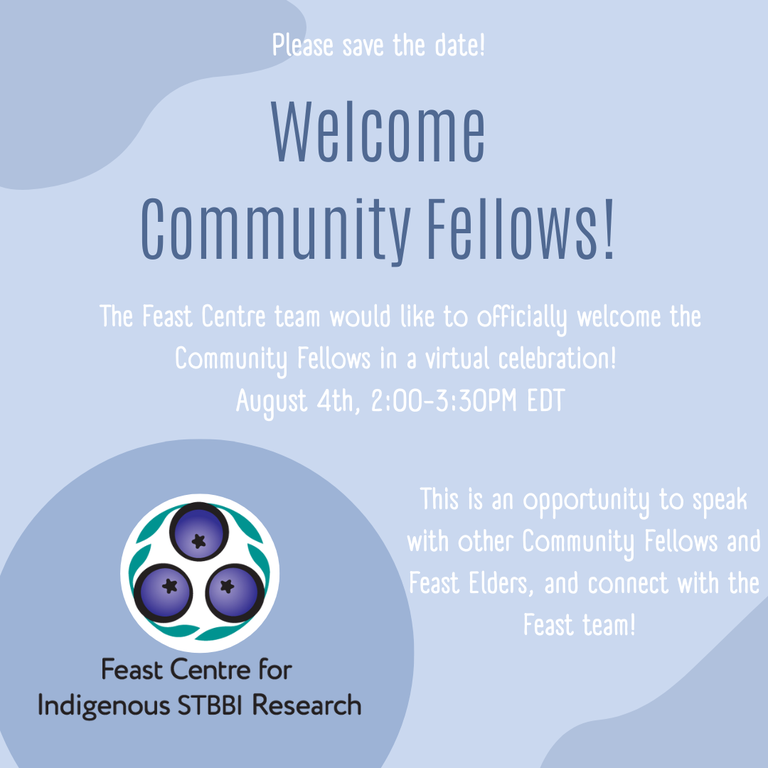
A Feast Centre Conversation: The Importance of Indigenous Knowledge in Indigenous STBBI Research
Feast Centre Conversation, December 2022: The History of Indigenous HIV/AIDS in Canada, A retrospective with ChangeMakers
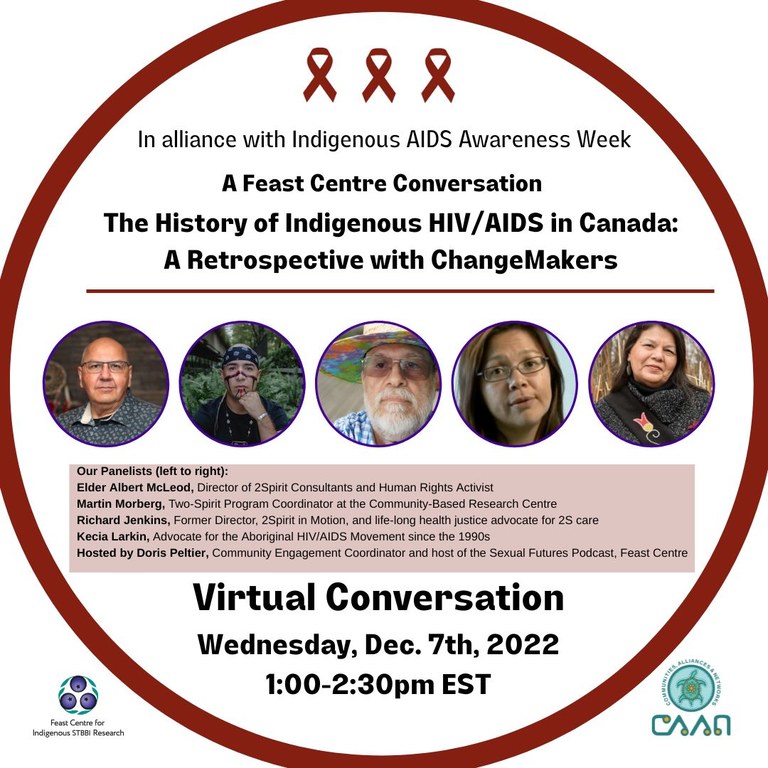
September 30th, The National Day for Truth and Reconciliation 2022
In solidarity and support of Truth and Reconciliation Day activities the Feast Centre office will be closed.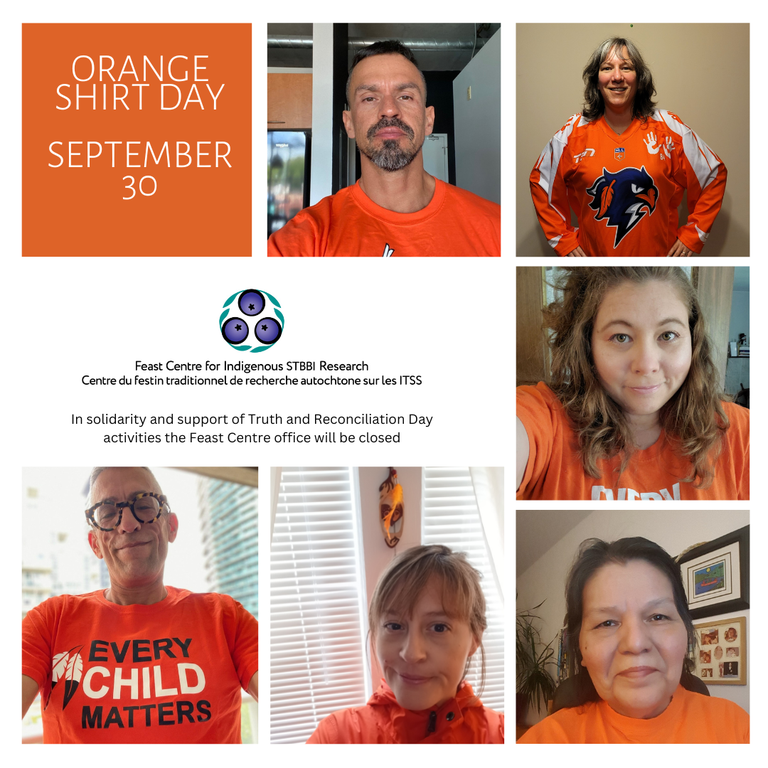
The Feast Centre Winter Stories 2022
A Feast Centre Conversation, September 2022: Monkeypox in Indigenous Communities
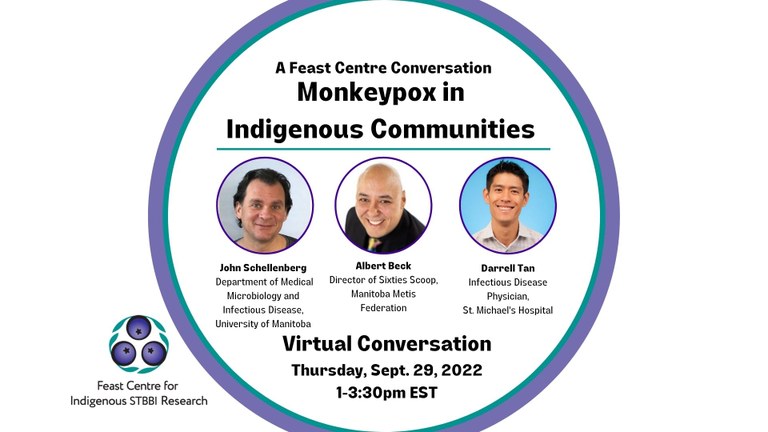
Virtual Launch of the Feast Centre for Indigenous STBBI Research
